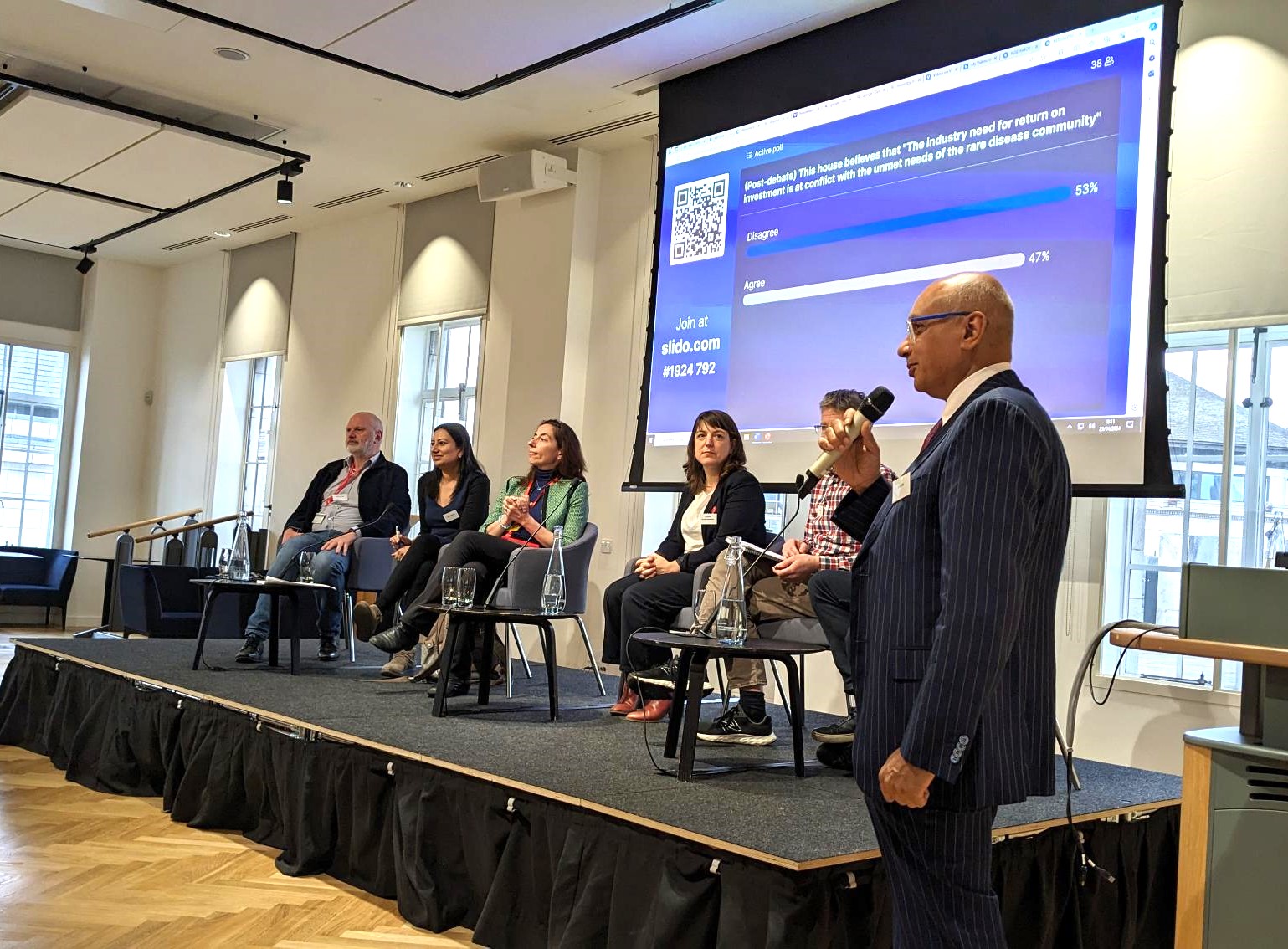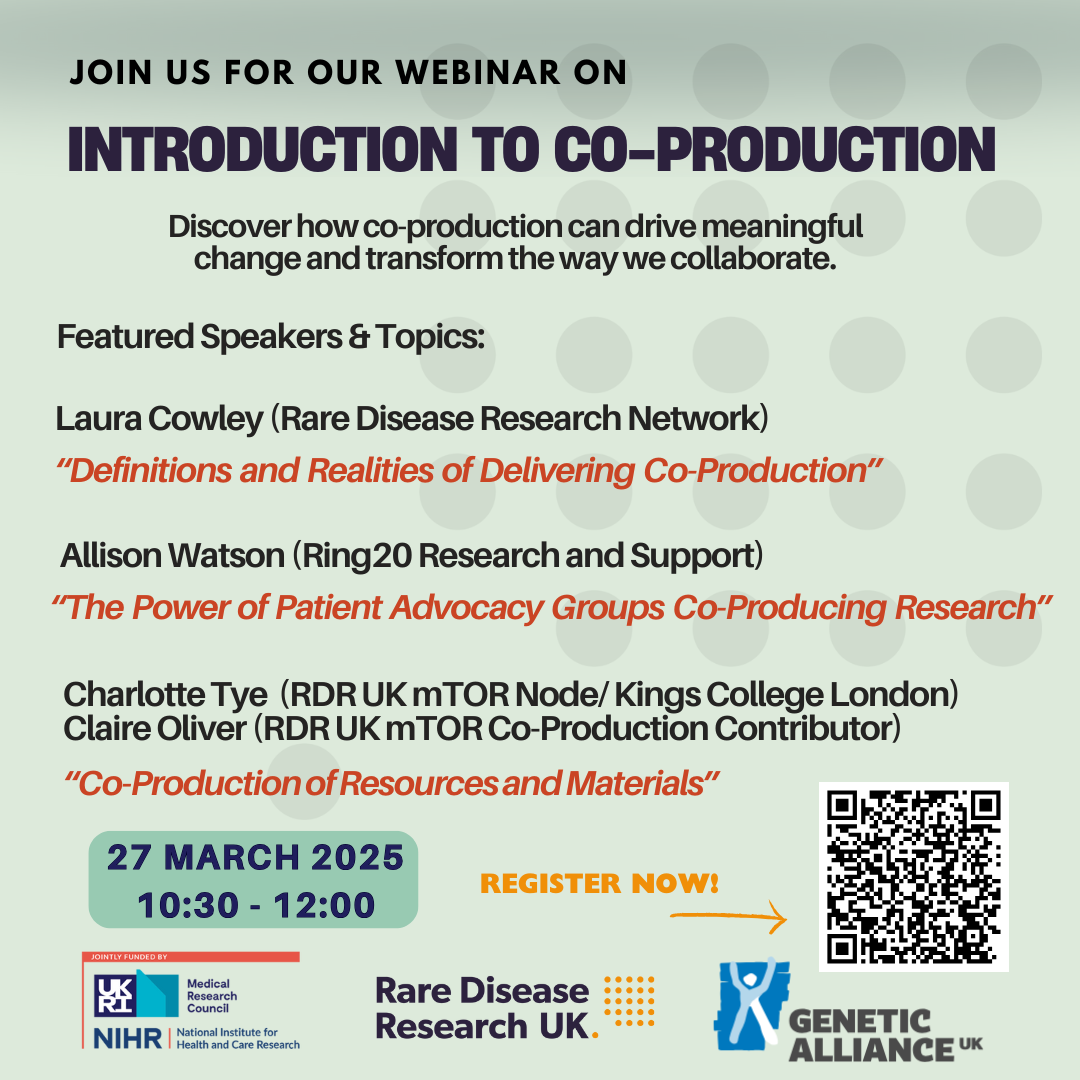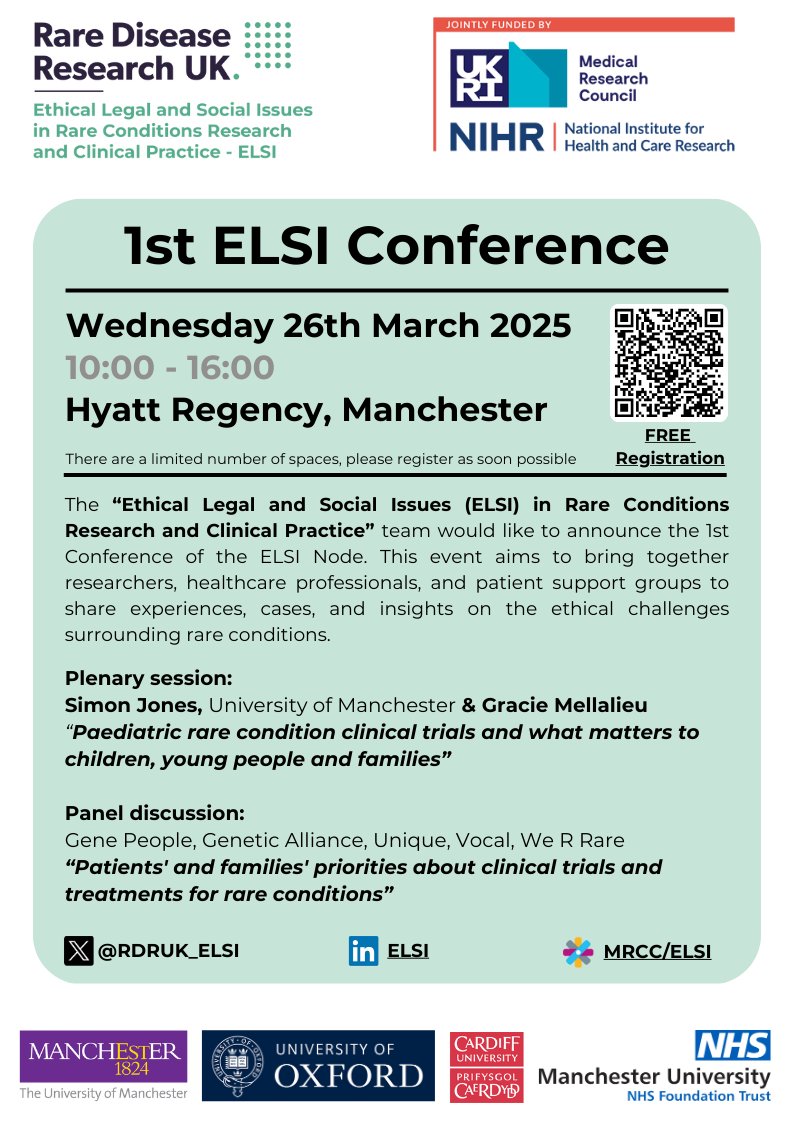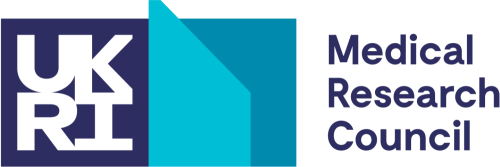The mTOR Pathway Disease Node held a 1-day symposium, jointly with the MRC Centre for Neurodevelopmental Disorders (NDDs), on rare NDDs at Bush house, London on 23
April 2024.
The symposium brought together experts in the field of neurodevelopmental disorders (NDDs) and stakeholders including people lived experience, for a day of insightful discussions and presentations.
The event commenced with an overview of Rare Disease Research at MRC, followed by talks on opportunities and challenges in neurodevelopmental disorders, and insights into the role of epilepsy-linked kinase CDKL5 in brain development and function. Sarah Goy, a visual artist living with a rare disease, shared her personal journey and insights into living with TSC and epilepsy, providing a unique perspective on the realities faced by patients.
The next session delved into genetics, models, and mechanisms in rare NDDs, featuring presentations on novel disorders, rare chromatin neurodevelopmental disorders, and targeted therapies for cortical malformations.
The symposium also addressed challenges in rare NDDs from the industry perspective, providing valuable insights into research and development efforts for rare epilepsies and new drug modalities.
Developing and trialling new therapies for rare NDDs was another key focus, with presentations highlighting advancements in gene therapy, clinical trials in TSC, and the use of human iPSC-derived neural circuits to model Dravet syndrome.
The event concluded with a stimulating debate chaired by Professor Deb Pal, on the topic “The industry need for return on investment is at conflict with the unmet needs of the rare disease community”. Prior to the debate, a poll conducted among the audience revealed that 69% were in agreement while 31% disagreed. However, the post-debate poll indicated a shift in favour towards the industry, with 47% in agreement and 53% in disagreement.
Overall, the symposium provided a platform for collaboration, knowledge exchange, and advocacy, furthering our understanding and efforts towards addressing rare neurodevelopmental disorders.





